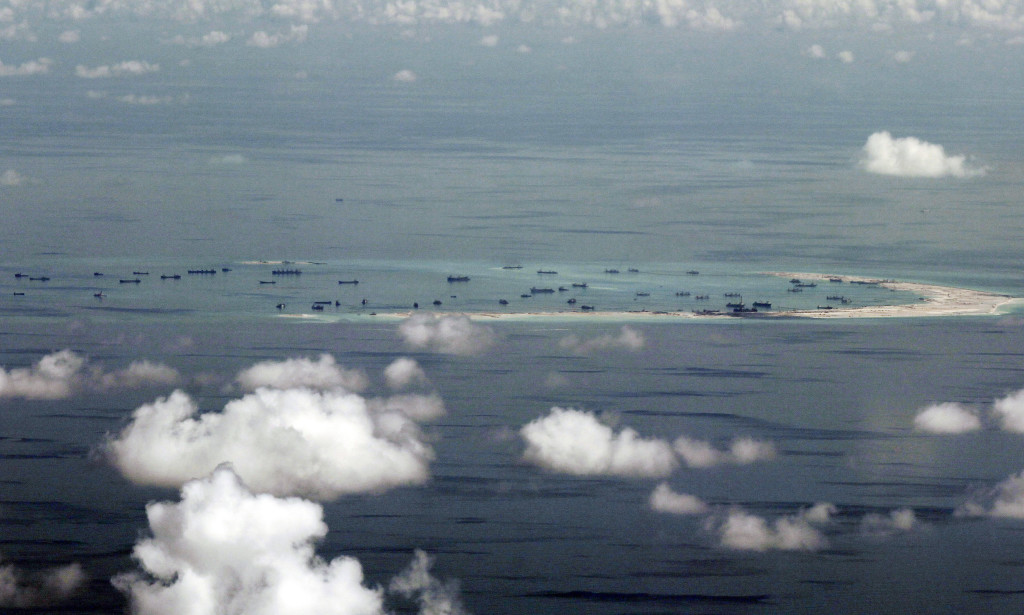
This May 11, 2015 file photo shows land reclamation of Mischief Reef in the Spratly Islands in the South China Sea. (Ritchie B. Tongo/Pool Photo via AP, File)
Defense ministers from Asean and the United States agreed Saturday to work closer together to strengthen maritime security in the region to combat terrorism, respond to natural disasters and, crucially, manage tensions at sea.
They were at the Asean-US Defense Ministers’ Informal Meeting in Hawaii, where they discussed practical ways to prevent incidents from escalating in the South China Sea amid heightened tensions in the contested waters recently.
Asean ministers welcomed the US’ continued engagement in the region and its active role in the Asean Defense Ministers’ Meeting-Plus, a forum which also includes China, Japan, South Korea, India, Russia, Australia and New Zealand.
The ministers also discussed direct lines of communication and forums to resolve disputes, Singapore Defense Minister Ng Eng Hen said.
“We need not only the absence of tensions but established platforms to anticipate and defuse problems before they occur,” he told his counterparts.
He called for a Code for Unplanned Encounters at Sea, which guides how military vessels should react to situations, to include coast guards and non-military ships, and for regional navies to develop a code of conduct for submariners to enhance underwater safety.
Asean ministers meet regularly with their counterparts from key partners, but the current meeting comes as the US is keen to stress its commitment to its Asia rebalance.
US Defense Secretary Ash Carter told his counterparts the US will help build a “principled and inclusive security network” that will boost cooperation and enable the Asia-Pacific to continue to grow and prosper.
READ: U.S. pushes for greater Asia security network
“This network will help us uphold important principles, like resolving disputes peacefully; ensuring countries can make their own choices free from foreign coercion and intimidation; and preserving the freedom of overflight and navigation guaranteed by international law,” he said.
Ng said as a non-claimant state in territorial disputes in the South China Sea, Singapore’s key interest is in ensuring the region remains stable and there are mechanisms to prevent any escalation.
Asean ministers also stressed the importance of freedom of navigation in these waters.
It was a point Carter highlighted at a press conference, saying: “We all recommitted our militaries to keeping the region’s waterways open and secure and to help all our nations see more, share more and do more in South-east Asia’s vital waterways.
“Together and on our own, we’re going to improve our coordination and cooperation within and among our respective militaries, and also with our coast guards.”
He said a US-Asean maritime dialogue next year will share best practices in maritime security, particularly on coordination between navies and coast guards.
The ministers also discussed the threat posed by terror group Islamic State in Iraq and Syria (ISIS), which has more than 1,000 foreign fighters from south-east Asia and is planning attacks in this region.
Terror cells are smuggling weapons and people by sea and the ministers agreed to share intelligence and information to combat them, while lauding patrols in the Sulu Sea by Malaysia, Indonesia and the Philippines to counter the threat.
Ng said on Facebook: “Many initiatives were proposed which need to be followed up. The most important point is that there is common understanding and partnership to keep our region safe and stable.”/rga

